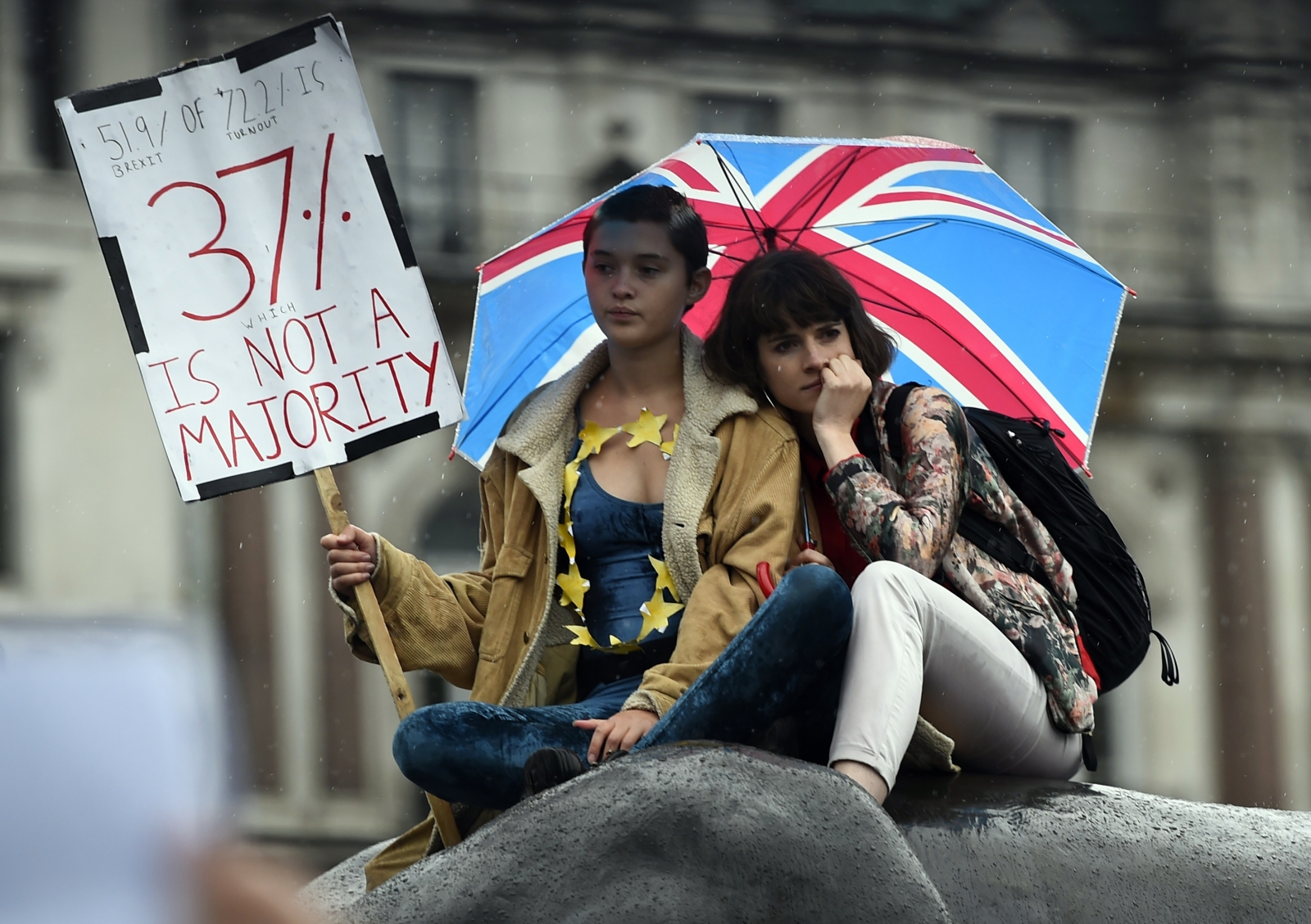In the February 2017 issue of the Brooklyn Rail, Pavlos Roufos offers an intriguing analysis of geopolitical developments from the financial crisis of 2007–08 to the present, arguing that the failure of economic elites to provide a real, systemic solution to the crisis paved the way for the neo-nationalism we’re witnessing today. Roufos also partly blames the uprisings of 2011–12 for this neo-nationalism because, he contends, they framed their demands for economic justice in national rather than international terms. Here’s an excerpt from the piece:
One might be tempted to conclude that what we are seeing is a global resurgence of the Right. This seems at first glance quite reasonable and it is also how the Left sees it, and how it urges people to see it too. As mentioned above, however, the binary of Left and Right is today incapable of shedding light to the situation. If Trump won, this also means that someone lost. The same goes for Brexit, for Renzi’s constitutional referendum in Italy and, if it happens—which is quite likely—for the victory of LePen in France in the election to come in May 2017. By insisting that recent developments represent merely a resurgence of the (extreme) right wing, one ignores that the central opponents of Trump, Brexit, and co. are not on the Left. Rather, they represent the embedded (usually neoliberal) élites of the last decades who oversaw the internationalization of trade, the deregulation and empowerment of financial institutions, the dismantling of working-class power and, perhaps most importantly, the management of the post-crisis systematic devaluation. This angle urges one to consider the contemporary predicament in its global context, something that no one seems to be doing at the moment.
The inability to draw a connecting line between the specific developments was made possible, among other things, by an insistence on treating each one as a localized event. In fact, it seems to be a persistent characteristic of contemporary discourse to treat the globalized context as a mere sum of particular cases, each one “celebrated” in its difference.
In this context, it is not surprising that most explanations for Trump’s victory (or for Brexit, for that matter) continue to be structured around the specificity of the places where it occurred or the ideological echo chambers of those who produce them. Detailed analyses of voting patterns and changes of voting behavior; income/racial breakdowns of electoral territories and results; more than not, a clash of personalities and the “culture” or sensitivities they represent; less often, ill-digested and simplified “analyses” of why places like the “fly-over regions” of the US went for someone like Trump or why residents of the ex-industrial pillars of the U.K. found in Brexit an answer to their problems. Clearly, there is no denying that Clinton has the demeanor of a Human Resources representative announcing dismissals (no matter what she is talking about), while people like Cameron seem to have been developed in the same lab. But the absence of an international context contributes to further mystifications concerning the transformations that are taking place.
All around the globe, established elites are losing their ground and are tacitly (or not) being replaced by so-called “populists.” And while the economic policies these elites have supported (largely unopposed) for almost three decades have not yet lost the ability to determine the global context, the turbulence of the period suggests that it will not be long before they do. Despite its supposed local flavor, this transformation is rooted in three key global conditions: the continuation of an economic crisis and the unflinching refusal of those who represent contemporary class power to consider the failure of their policies; the promise of a “return” to the national community as a means to counteract the effects of the continuing slowdown of the global economy; and the inability of recent social movements to take advantage of the space opened up by the crisis to move in an emancipatory direction.
Image: Protest again the Brexit vote results, June 2016. Via ibtimes.co.uk.
